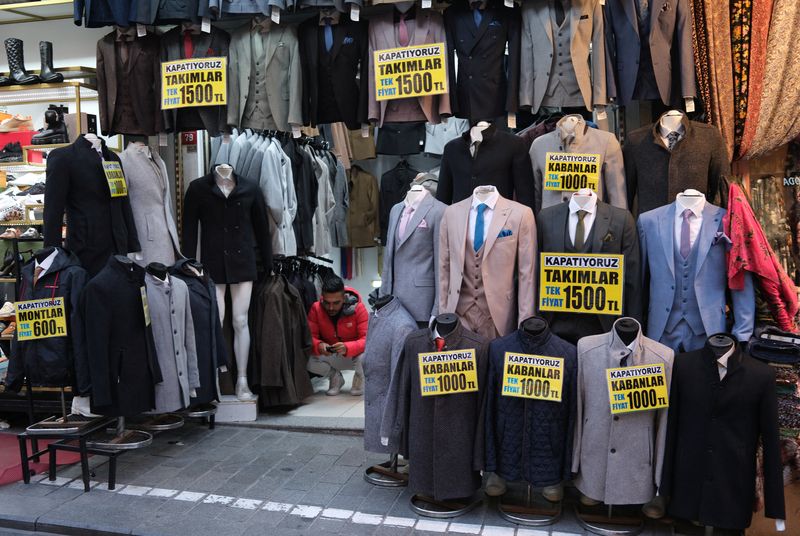ISTANBUL (Reuters) -Turkish inflation was lower than expected at 44.38% annually and 1.03% on a monthly basis in December, data showed on Friday, in a month in which the central bank launched an easing cycle after an extended battle to tame runaway price rises.
The month-on-month rate was less than half of November's 2.24%, the Turkish Statistical Institute data showed, while the annual consumer price inflation (CPI) figure was down from just over 47% that month.
Education, housing and restaurant prices were the key drivers of the annual print, with furniture and telecoms-related prices rises leading the monthly number.
A Reuters poll found economists had expected an annual rate of 45.2% and a monthly rate of 1.61%.
The latest inflation print hit the central bank's midpoint target of 44% for year end. Annual inflation in December was the lowest since mid-2023.
The bank launched an easing cycle last week, cutting the policy rate by 250 basis points to 47.5%. Between mid-2023 and last year, strong inflation and currency market pressures had seen it ramp rates right up to 50% from 8.5%.
Following the cut, the bank said policy will be set "prudently" and meeting by meeting with a focus on the inflation outlook while responding to any expected "significant and persistent deterioration".
With inflation now slowing, the central bank is seen continuing with rate cuts, economists say.
Given that it has also just cut the number of rate-setting meetings it will hold each year to eight from 12, analysts at JPMorgan said on Friday they now expect the central bank to make three 250 bps cuts this year and five more of 200 bps each.
If correct, that would take Turkish interest rates down to 30% by the end of 2025.
Finance Minister Mehmet Simsek said inflation will keep falling and hit this year's targets "with the increasing support of fiscal policy, the decrease in rigidity in services inflation and the improvement in expectations".
A recent Reuters poll showed economists expect annual inflation falling to be running at 26.5% by the end of the year. The central bank meanwhile forecasts it to drop to 21%.
Prices in coming months will be affected by new-year administered hikes and the 30% rise in minimum wage, which was less than requested by workers.
While most taxes and fees are updated with the usual inflation coefficient in 2025, the government hiked a tax on fuel, which has a major impact on overall prices, by a lower 6% as of January as part of the disinflation program.

The domestic producer price index was up 0.4% month on month in December for an annual rise of 28.52%, the data showed.
The Turkish lira was little changed after the data at 35.3850 to the dollar, hovering around a record low.